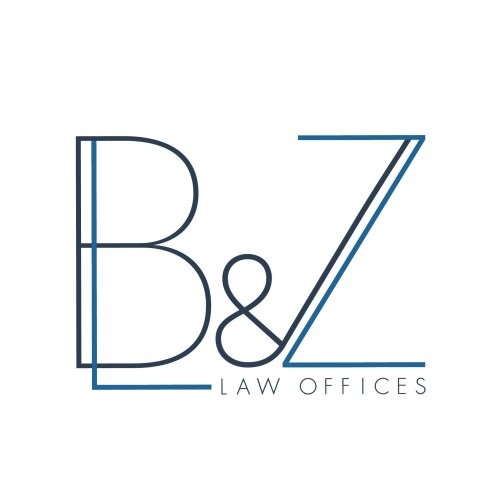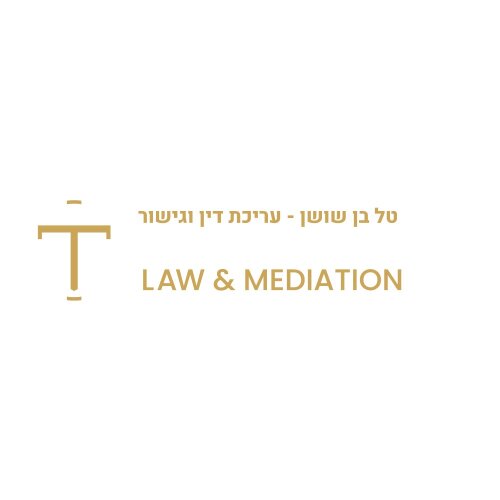Best Corporate Governance Lawyers in Israel
Share your needs with us, get contacted by law firms.
Free. Takes 2 min.
Or refine your search by selecting a city:
List of the best lawyers in Israel
About Corporate Governance Law in Israel
Corporate governance in Israel refers to the system of rules, practices, and processes by which companies are directed and controlled. It establishes the relationships among a company’s management, board of directors, shareholders, and other stakeholders. The aim is to ensure accountability, fairness, and transparency in a company’s affairs while serving the interests of shareholders and the wider community. Israeli corporate governance law draws from local legislation, such as the Israeli Companies Law 1999, as well as global best practices. Both public and private companies must adhere to these governance requirements, with stricter regulations often applying to publicly traded entities.
Why You May Need a Lawyer
Navigating corporate governance regulations in Israel can be complex. Legal assistance is often necessary in situations such as:
- Establishing a new company and ensuring proper governance structures from the outset.
- Drafting or amending articles of association and other foundational documents.
- Managing conflicts of interest and related party transactions.
- Understanding the responsibilities and liabilities of directors and officers.
- Dealing with shareholder rights and disputes.
- Complying with disclosure and reporting requirements, especially for public companies.
- Planning and implementing corporate reorganizations or mergers and acquisitions.
- Handling regulatory investigations or enforcement actions.
A knowledgeable legal advisor can help you avoid pitfalls, minimize risks and ensure compliance with all relevant laws and regulations.
Local Laws Overview
Israel’s principal legislation governing corporate governance is the Israeli Companies Law 1999. Key aspects include:
- Board Structure and Duties: Directors must act in good faith and for the benefit of the company. Independent and external directors are required in public companies.
- Shareholder Rights: Shareholders have specific rights regarding meetings, voting, receiving dividends, and receiving certain company information.
- Related Party Transactions: Transactions with controlling shareholders or other related parties often require disclosure and shareholder approval.
- Disclosure and Reporting: Public companies must meet strict disclosure obligations set by the Israel Securities Authority and the Tel Aviv Stock Exchange.
- Audit Committees: Public companies must appoint audit committees with specific duties to oversee financial reporting and internal controls.
- Corporate Social Responsibility: While not strictly legislated, there is an increasing emphasis on ethical conduct and social responsibility in business operations.
- Liability and Enforcement: Directors and officers can be personally liable for breaches of duties under both civil and criminal law.
Frequently Asked Questions
What is the role of the board of directors in Israeli companies?
The board of directors is responsible for overseeing the company’s management, setting strategic direction, and ensuring compliance with applicable laws and regulations.
Are there specific requirements for board composition?
Yes. Public companies in Israel are required to appoint independent and external directors to promote impartial decision-making, especially in sensitive matters such as related party transactions.
What legal duties do directors owe in Israel?
Directors owe duties of care, loyalty, and good faith. They must act in the best interests of the company and avoid conflicts of interest.
How are conflicts of interest handled under Israeli law?
Conflicts of interest must be disclosed to the board. Certain related party transactions require approval by the board and shareholder meetings, particularly in public companies.
What rights do shareholders have in Israeli companies?
Shareholders have rights to vote at meetings, receive dividends (if declared), inspect certain company documents, and participate in important corporate decisions.
How are corporate governance rules enforced?
The Securities Authority, courts, and, for public companies, the Tel Aviv Stock Exchange can enforce compliance. Directors can face civil and criminal penalties for significant breaches.
Do private companies have the same governance requirements as public companies?
Private companies are subject to fewer governance requirements. Public companies face stricter regulations, especially concerning disclosure, independence, and protections for minority shareholders.
Is it mandatory for Israeli companies to have audit committees?
Yes, all public companies must have an audit committee, while private companies are not required to have one unless specified in their articles of association.
What are the main laws governing corporate governance in Israel?
The Israeli Companies Law 1999, Israeli Securities Law 1968, and regulations issued by the Israel Securities Authority form the legal foundation for corporate governance in Israel.
Can shareholders take legal action against directors?
Yes. Shareholders can bring derivative actions on behalf of the company or file direct claims if they believe directors have breached their duties or acted unlawfully.
Additional Resources
- Israel Securities Authority - Regulates public company disclosures and securities laws
- Registrar of Companies at the Ministry of Justice - Handles company registration and filings
- Tel Aviv Stock Exchange - Sets listing and corporate governance requirements for public companies
- The Israel Bar Association - Directory of lawyers with expertise in corporate governance
- Third sector and non-profit organizations focused on corporate accountability
Next Steps
If you need guidance or legal assistance regarding corporate governance in Israel, consider the following steps:
- Determine the specific issue or area where you require help, such as compliance, disputes, or structuring governance frameworks.
- Gather relevant company documents, such as articles of association, board resolutions, and recent shareholder communications.
- Consult with a qualified lawyer specializing in Israeli corporate law to discuss your options and legal obligations.
- Stay informed by reviewing updates from relevant regulatory bodies like the Israel Securities Authority.
- Take proactive measures to ensure ongoing compliance and to address governance issues before they escalate.
Obtaining timely legal advice can help safeguard your business, maintain good governance standards, and minimize the risk of legal challenges.
Lawzana helps you find the best lawyers and law firms in Israel through a curated and pre-screened list of qualified legal professionals. Our platform offers rankings and detailed profiles of attorneys and law firms, allowing you to compare based on practice areas, including Corporate Governance, experience, and client feedback.
Each profile includes a description of the firm's areas of practice, client reviews, team members and partners, year of establishment, spoken languages, office locations, contact information, social media presence, and any published articles or resources. Most firms on our platform speak English and are experienced in both local and international legal matters.
Get a quote from top-rated law firms in Israel — quickly, securely, and without unnecessary hassle.
Disclaimer:
The information provided on this page is for general informational purposes only and does not constitute legal advice. While we strive to ensure the accuracy and relevance of the content, legal information may change over time, and interpretations of the law can vary. You should always consult with a qualified legal professional for advice specific to your situation.
We disclaim all liability for actions taken or not taken based on the content of this page. If you believe any information is incorrect or outdated, please contact us, and we will review and update it where appropriate.
Browse corporate governance law firms by city in Israel
Refine your search by selecting a city.

















